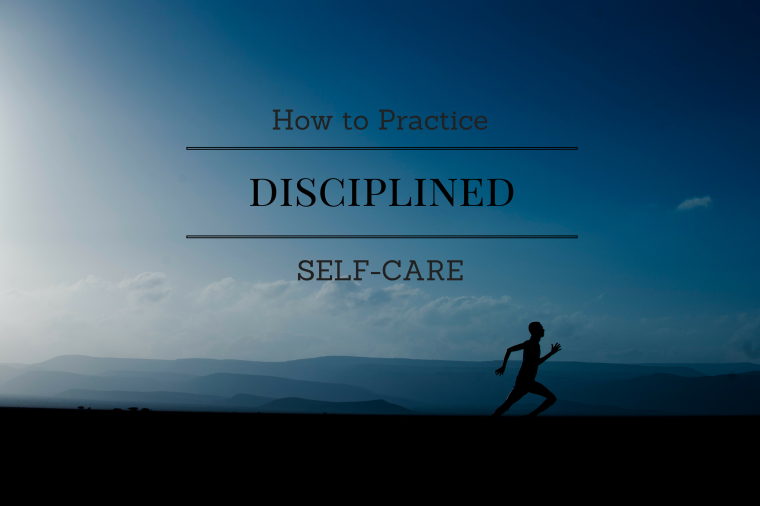Many years ago, a Christian marriage and family therapist I knew celebrated his birthday by surprising his wife with the news that he wanted a divorce. He called it his “gift to himself.”
Tragically, this man did not realize that he wasn’t doing himself any favors by divorcing his wife. What was truly best for him would have been to learn to love his wife, to invest in their marriage and to keep their family together. He did what seemed easiest and sacrificed his long-term best interests. He celebrated self-centeredness and called it self-care.

Last week’s post described how to develop self-care that shows the first of these dynamics, the nurturing, compassionate aspect of self-care. In this last post in our series on self-care, we’re taking a look at the second dynamic of healthy self-care: limits and discipline. How can we develop disciplined self-care?
1) Build Routines
I’m a big believer in the power of habits. Research shows that when an action becomes a habit, it requires less of our limited supply of willpower. For example, most of us don’t have to force ourselves to brush our teeth each morning. We do it automatically. We don’t have to use up precious willpower making ourselves do it.
A series of habits equals a routine. A great way to practice healthy self-care is by building routines that are nourishing and good for you. It takes willpower and discipline to set up a routine, but once it’s established, a good routine frees up your energy for other goals.
I have a set morning routine that includes time to pray and journal, time to workout, and time to get ready for the day. I adapt my routine as needed, depending on that day’s schedule, but the basic pattern stays the same.
So think of a habit that you want to incorporate into a routine. Work on it consistently for the next month. Be intentionally proactive in order to free up your energy for other responsibilities.
2) Use Your Gifts
Using the gifts God has given you is also part of good self-care. It feels great to have a sense of accomplishment, to know that you are progressing toward goals that are important to you.
Maybe you’re in a season of life where you feel like you can’t fully pursue your calling. Maybe you are in an unfulfilling job because it pays the bills. Maybe you are caring for small children and that consumes your time. I encourage you to find small ways that you can continue to develop your gifts. Read books in your field, plant a garden, take a class, start a blog. “God doesn’t want us to be shy with his gifts, but bold and loving and sensible.” (2 Timothy 1:7)
3) Do the Hard Things
In a recent interview, former Disney executive Lee Cockerell said, “Are you doing the hard things? When you do the hard things, life gets a whole lot easier. If you just keep doing the easy things, life gets really hard.”
It’s easy to give up; it’s hard to persist. It’s easy to spend money; it’s hard to save money. It’s easy to be reactive; it’s hard to be proactive. It’s easy to let things crowd out quality family time; it’s hard to protect that time.
But when we do the hard work, we get the earned reward — the savings account, the connected family, the promotion. People who practice good self-care are people who discipline themselves to do the hard thing, knowing that it’s worth it in the end.
Question: What do you think? How have you practiced disciplined self-care? You can leave a comment by clicking here.

Please note: I reserve the right to delete comments that are offensive or off-topic.